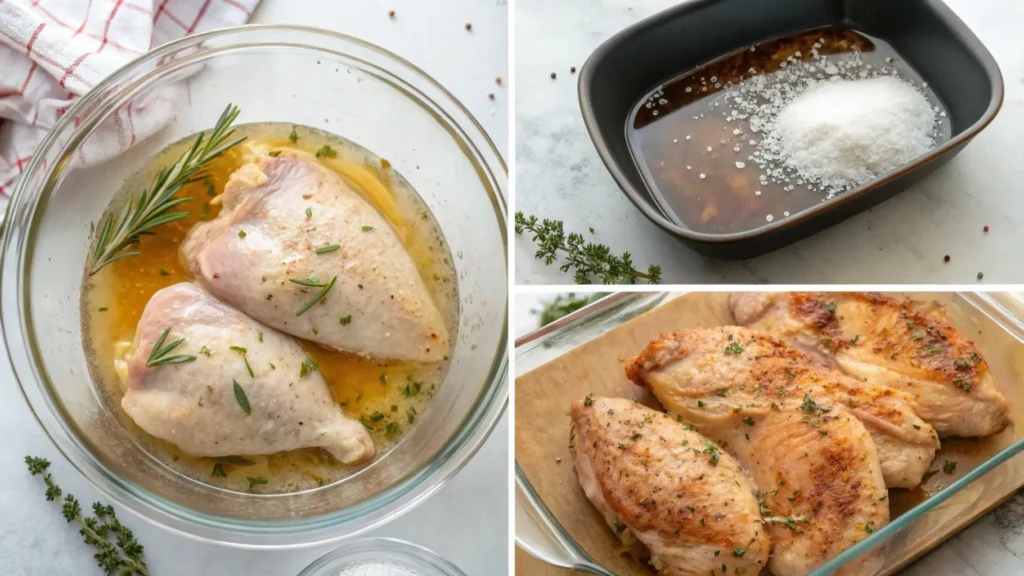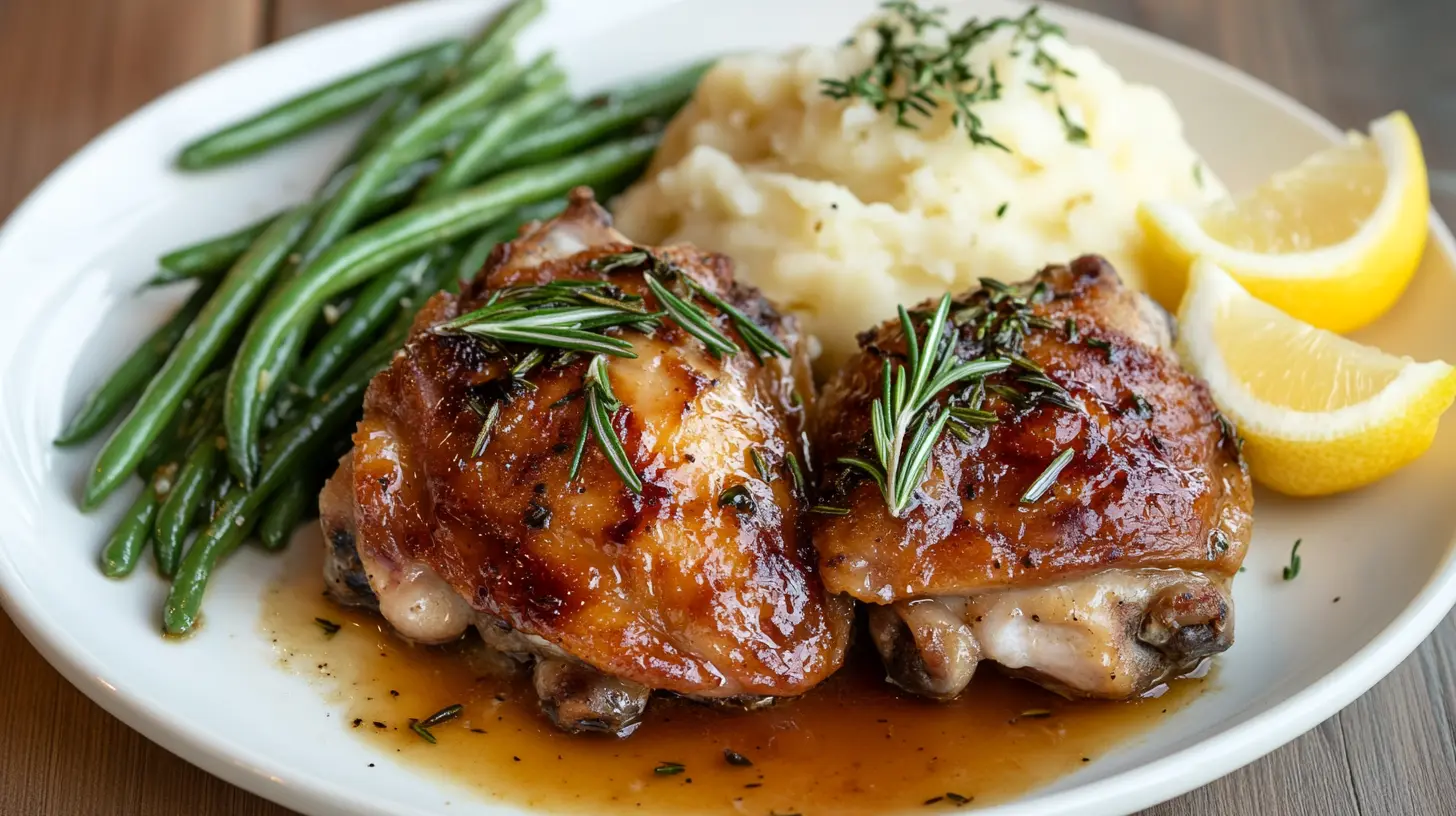Cooking tender chicken is an art that combines the right techniques, proper preparation, and a dash of patience. Whether you’re whipping up a family dinner or preparing a gourmet dish, getting the chicken tender is the key to a flavorful and enjoyable meal. In this guide, we’ll dive into how to cook chicken very tender, exploring everything from choosing quality chicken to perfecting your cooking techniques. By the end, you’ll have the confidence to create tender, juicy chicken every time!
The Importance of Tender Chicken
Why Tenderness Matters in Chicken Dishes
Tender chicken isn’t just about taste—it’s also about the overall dining experience. When chicken is juicy and tender, it practically melts in your mouth, elevating even the simplest of recipes. On the other hand, dry, tough chicken can turn a promising meal into a disappointment. Whether it’s grilled, baked, or slow-cooked, the texture plays a significant role in making chicken enjoyable.
Tender chicken also locks in flavors more effectively. Marinades, spices, and sauces penetrate soft, moist meat better than dry, stringy pieces. So, mastering how to cook chicken very tender is crucial if you want to serve dishes that are not only delicious but also memorable.
How Overcooking Ruins Flavor and Texture
Let’s face it: overcooking is the number one culprit behind dry, tough chicken. When you cook chicken past the recommended internal temperature (165°F or 74°C), the moisture evaporates, leaving the meat rubbery and bland. It’s easy to overdo it, especially with lean cuts like chicken breasts, which cook quickly and have little fat to keep them moist.
But fear not! With the right techniques—such as using a meat thermometer and letting the chicken rest after cooking—you can avoid this common pitfall. Plus, incorporating methods like brining or marinating can act as a safety net, ensuring your chicken stays tender even if it’s slightly overcooked.
Choosing the Right Chicken for Tenderness
Fresh vs. Frozen Chicken: Does It Make a Difference?
When figuring out how to cook chicken very tender, the quality of the chicken itself plays a huge role. Fresh chicken often has a better texture compared to frozen ones. Freezing can sometimes lead to moisture loss, which affects the meat’s tenderness. If you’re using frozen chicken, make sure to thaw it properly in the fridge to retain as much moisture as possible.
That said, fresh chicken isn’t always an option for everyone. If frozen chicken is your go-to, brining or marinating it can help revive its texture and make it juicy again. No matter what, starting with good-quality chicken sets the stage for a tender and flavorful dish.
Organic and Free-Range Options for Better Texture
If you have the chance, choose organic or free-range chicken. These types of chicken tend to have a better texture because they are raised in healthier environments. While they might cost a bit more, the payoff is worth it when you bite into that juicy, tender meat. The natural feed and active lifestyle of these birds contribute to their flavor and softness, making them an ideal choice for achieving the perfect dish.
Pre-Cooking Techniques for Tender Chicken
Tenderizing Methods: Pounding and Slicing
Tenderizing your chicken before cooking is a game-changer. Using a meat mallet to gently pound the chicken breast ensures even thickness, which is essential for consistent cooking. Uneven chicken often leads to overcooked edges and undercooked centers. By tenderizing it, you’ll avoid these issues and end up with meat that cooks evenly and stays juicy.
Another trick is slicing thicker pieces into smaller, thinner cuts. This helps the chicken cook faster and prevents it from drying out. Both methods are simple yet effective ways to prepare your chicken for the cooking process.
Marinating for Flavor and Texture Improvement
Marinating is one of the most effective answers to the question, “How to cook chicken very tender?” A good marinade not only enhances flavor but also breaks down the proteins in the chicken, making it softer. Aim for marinades that include acidic ingredients like lemon juice, vinegar, or yogurt. These acids work wonders in tenderizing meat.
Let the chicken sit in the marinade for at least 30 minutes, though longer is better. Overnight marination in the fridge can produce fantastic results, infusing the meat with flavors while ensuring tenderness. A basic marinade might include olive oil, garlic, lemon juice, and a mix of your favorite herbs—simple yet incredibly effective.
Brining: The Key to Moist and Juicy Chicken

If marinating isn’t your thing, brining is another powerful technique. By soaking the chicken in a saltwater solution, you help it retain moisture during cooking. Brining works especially well for lean cuts like chicken breasts, which tend to dry out quickly. To make a simple brine, dissolve salt and sugar in water, and soak the chicken for 30 minutes to a few hours.
Brining not only keeps the chicken moist but also seasons it from the inside out. Whether you’re baking, grilling, or frying, this step can make all the difference in your journey to mastering how to cook chicken very tender.
Cooking Techniques for Tender Chicken
Low and Slow Methods: Braising and Slow Cooking
When exploring how to cook chicken very tender, using low and slow cooking techniques is a game-changer. Braising, for instance, involves cooking the chicken in a small amount of liquid, such as broth or wine, at a low temperature over an extended period. This method breaks down the connective tissues in the meat, resulting in an incredibly tender texture. It works especially well for cuts like thighs and drumsticks.
Similarly, a slow cooker can be your best friend for tender chicken. Add chicken pieces, seasonings, and your favorite liquid—like broth, tomato sauce, or even coconut milk—and cook on low for several hours. The gentle heat ensures the chicken stays moist and flavorful, making it perfect for shredding or serving whole.
Quick High Heat: Searing and Grilling Tips
For those who prefer faster methods, searing and grilling are great options if done correctly. Start by searing the chicken in a hot pan to lock in its juices and create a golden crust. After searing, lower the heat or transfer the chicken to the oven to finish cooking. This combination ensures the meat remains tender without becoming dry.
Grilling can be tricky, as it’s easy to overcook chicken on high heat. To avoid this, preheat your grill and cook over indirect heat. Marinating the chicken beforehand also helps keep it juicy and tender, even when exposed to the grill’s intense heat.
Common Mistakes to Avoid
Overcooking and Its Impact on Tenderness
One of the most common pitfalls in how to cook chicken very tender is overcooking. Once chicken surpasses its ideal internal temperature of 165°F (74°C), the proteins contract, squeezing out moisture and leaving the meat tough and dry. To prevent this, use a meat thermometer to monitor the temperature closely.
Another common mistake is cooking chicken at too high a heat for an extended period. Lean cuts like breasts are especially vulnerable to drying out, so opt for lower temperatures or quicker cooking methods.
Skipping Rest Time: A Common Error
Resting chicken after cooking might seem unnecessary, but it’s a vital step for retaining tenderness. When the chicken rests, the juices redistribute throughout the meat instead of spilling out when you cut into it. A 5-10 minute rest makes all the difference, leaving you with a moist and tender bite every time.
Reheating and Leftover Tips for Tenderness
How to Reheat Chicken Without Drying It Out
Reheating chicken can be tricky, but if you follow the right steps, you can maintain its tenderness. When learning how to cook chicken very tender, it’s just as important to reheat it properly. The key is to add moisture back into the meat during reheating.
If using the oven, cover the chicken with foil and add a small amount of broth, water, or sauce to the dish. Heat it at a low temperature (around 325°F) to avoid overcooking. For stovetop reheating, place the chicken in a pan with a splash of liquid, cover it, and heat gently until warmed through.
The microwave is the quickest method, but it can dry out the meat. To prevent this, cover the chicken with a damp paper towel and heat it in short intervals, checking frequently.
Best Practices for Storing Tender Chicken
Proper storage plays a role in keeping chicken tender, even after a few days. Always store cooked chicken in an airtight container to lock in moisture. Refrigerate it within two hours of cooking to prevent it from drying out. For longer storage, freezing is a great option—just wrap the chicken tightly in plastic wrap or foil before placing it in a freezer-safe bag.
When you’re ready to eat, let frozen chicken thaw in the fridge overnight for even reheating. Following these simple steps ensures that your chicken stays moist and flavorful, even as leftovers.
Pairing Tender Chicken with Sides
Perfect Side Dishes for Tender Chicken
Now that you’ve mastered how to cook chicken very tender, it’s time to think about sides. Pairing the chicken with complementary dishes enhances the overall meal. Classic options like buttery mashed potatoes or steamed rice soak up chicken juices beautifully, creating a satisfying combination.
For lighter meals, consider fresh salads or roasted vegetables. Crisp greens with a tangy vinaigrette can balance the richness of the chicken, while roasted carrots, asparagus, or zucchini add a touch of sweetness and texture.
Creative Sauces to Complement Chicken
A flavorful sauce can take your tender chicken to the next level. Creamy herb sauces, like a garlic and parsley butter, add richness without overpowering the chicken. Citrus-based sauces, such as lemon caper or orange glaze, brighten up the dish and pair well with the juicy texture.
If you prefer something bold, consider spicy marinades or tangy barbecue sauces to drizzle over the chicken. These additions enhance the flavor of the meat while keeping it moist and irresistible.
Frequently Asked Questions
How Do You Make Chicken Breast Tender Without Marinating?
Not everyone has the time to marinate chicken, but you can still achieve tenderness with other methods. One effective technique is brining. A simple saltwater brine works wonders by helping the meat retain moisture during cooking. Alternatively, use a meat mallet to pound the chicken breast to an even thickness, ensuring it cooks uniformly.
Cooking techniques also play a significant role. Poaching chicken breasts in broth or water keeps them moist and tender. Avoid high heat, as it can dry out lean cuts like breasts quickly. Mastering these techniques is key when asking how to cook chicken very tender? without marination.
What is the Best Cooking Method for Moist Chicken?
Several cooking methods ensure tender, juicy chicken, but some stand out for their consistency. Slow cooking is a foolproof way to break down tougher cuts like thighs and drumsticks, creating melt-in-your-mouth results. Braising, which involves cooking chicken in a flavorful liquid at low heat, is another excellent choice.
For faster options, poaching and steaming lock in moisture and deliver consistently tender chicken. When grilling or baking, always baste the chicken with butter or broth to prevent it from drying out.
Can You Over-Tenderize Chicken?
Yes, over-tenderizing chicken is possible, especially when using acidic marinades for too long. Ingredients like lemon juice or vinegar can break down proteins excessively, resulting in a mushy texture. To avoid this, limit marination times to 30 minutes to a few hours, depending on the marinade.
Similarly, overcooking chicken can cause it to lose its structure and turn tough instead of tender. Using a meat thermometer ensures the chicken reaches the perfect internal temperature of 165°F without going over.
Why is Resting Chicken Important?
Resting chicken after cooking is crucial for maintaining tenderness. Cutting into chicken immediately causes the juices to spill out, leaving the meat dry. Allow the chicken to rest for 5-10 minutes after cooking so the juices redistribute evenly. This step ensures that every bite is moist and flavorful.
Can You Tenderize Frozen Chicken?
While it’s challenging to tenderize frozen chicken directly, you can achieve similar results after thawing. Always thaw chicken in the refrigerator to preserve its texture. Once thawed, tenderize it with a meat mallet, marinate it, or brine it to ensure it cooks tender and juicy.
How Do Restaurants Make Their Chicken So Tender?
Restaurants use a variety of techniques to keep chicken tender, including brining, marinating, and sous vide cooking. Brining enhances moisture retention, while marinades infuse flavor. Sous vide allows for precise temperature control, preventing overcooking. Replicating these methods at home answers the question of how to cook chicken very tender? like a pro.

